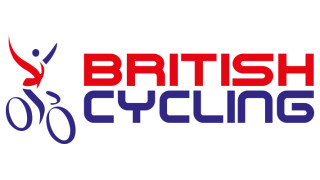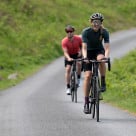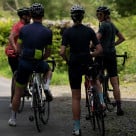British Cycling is today publishing further details of the revised BMX youth competition structure following further consultation with the BMX community over the summer in recognition of the earlier specialism requirements of the discipline.
The changes are part of an ongoing response to the increasing numbers of young people who want to take part in cycle sport and are founded on three key principles:
- Youth cycling should be fun. For young riders, building a lifelong passion for cycling through the development of core skills should be the focus and primary outcome. Whilst competition is good - learning to win and lose is an essential life skill - the chasing of points to achieve a bigger result than the result of each individual event promotes undue pressure on young children.
- Youth cycling should be accessible. From club coaching activities to competition opportunities to equipment, young people should have the opportunity to access the sport and cost should not be a barrier. Success and enjoyment of sport for young riders should not depend on their parents' ability to pay for equipment or travel.
- Youth cycling should be simple and easy to understand. The rules, regulations and other information should be clear and easy to follow for all involved. There should be consistency across the sport in the approach taken to competition with a well-defined and logical pathway for rider development appropriate to the physical, technical and psychological demands of each discipline.
The new structure establishes a clear pathway for all young people entering BMX – from those who want to try the sport for fun, to those who want to progress to national and international racing – based on key parameters ratified by the Board of Directors. They are:
National
- BMX National Series points-scoring categories will be for riders in the age category 9 and upwards. This change will be introduced gradually. In 2016 the minimum points-scoring age category will be 7; in 2017 it will be 8; and in 2018 and onwards it will be 9.
- Events for younger categories will still be held at all national series events, with the only change being they will no longer carry ranking points or series standings.
- For riders in age categories 9 to 12 (inclusive) the number of national series rounds counting towards the overall series standings will be reduced, minimising travel requirements to compete in the series.
- Full national series will be for riders aged 13 and above.
International
- Participation in European series events remains unchanged for all age categories.
- Participation in Challenge classes for the World and European Championships is only for riders in the age category 9 and upwards. This change will be introduced gradually. In 2016 the minimum age category will be 6; in 2017 it will be 7; in 2018 it will be 8; and in 2019 and onwards it will be 9.
- All riders in Challenge classes at the 2017 Worlds and onwards (up to and including adults) will wear a new Challenge jersey. Wearing a Great Britain Cycling Team jersey and being part of the Great Britain Cycling Team will be only for the Junior / Elite riders at the worlds to ensure it remains an aspirational long term goal
For 2016 the Board makes it clear that there will be no change to international representation – riders will still be able to compete in the Challenge Class in a Great Britain Cycling Team jersey via the existing qualification process.
National series will be unchanged for riders age category 7 and above, minimising travel requirements to compete in the series. Riders in age category 6 and below will still be able to race for trophies and podium places at all national series events, though there will be no series standings or ranking points available.
The popularity of the national series continues to grow – with a 5% increase in participation this year – and the Board expects the high demand to host and compete in events to continue in 2016.
For 2017 final details are currently being worked through before the changes become fully operational. This process is already underway and further details will be published in 2016. Specifically, the BMX Commission will develop a pathway for riders to progress from regional, through national, to international competition.
The BMX Commission will also develop new qualification criteria for Challenge events in time for the world Championships and European Championships in 2017, and ensure an appropriate adult-to-child ratio at each level of competition.
The changes are part of a wider drive to strengthen the sport across all disciplines and at all levels, based on the desire to make cycling accessible and affordable for young children and their families while preserving healthy competition and presenting potential champions with the right opportunities to fulfil their talent.
For BMX, this includes significant investment in facilities and dedicated work to offer more and better coaching. A new BMX-specific level two course has created a national network of more than 270 BMX coaches who are already developing and inspiring the next generation of champions, including a 15% increase in qualified coaches in 2015 alone.
School and community initiatives delivered by our dedicated Go-Ride coaches in 2014/15 have created 26,000 opportunities for young people to get involved with BMX, aiding the continued growth of more than 300 Go-Ride clubs nationwide. The number of volunteer BMX officials trained by British Cycling has increased by 41% since 2012, with a 20% increase in 2015.
Bob Howden, Chair of the British Cycling Board of Directors, said: “This is another important step in delivering the new youth competition structure. The Board has established clear parameters to ensure that young riders and their families have a clear view of the 2016 season and beyond.
"For BMX, I believe the changes will give clubs and regions both the stimulus and the flexibility to deliver programmes and events that are right for their communities whilst providing a clear, progressing pathway to those who aspire to national and international competition.
“Along with our continued investment in facilities and coaching across the whole country, these changes will allow BMX to continue to grow and ensure that the record numbers of young people coming into the sport are given every chance to develop a lifelong passion for a sport that has a unique capacity to transform people’s lives for the better.”





